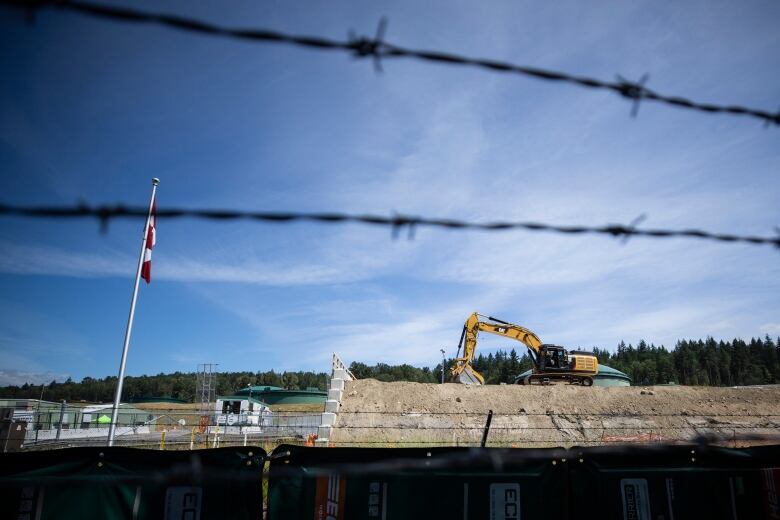Scheer says he'd fast-track pipeline challenges straight to Supreme Court
Conservative leader proposes circumventing lower court appeals 'so that we can get certainty' on projects

A Conservative government would overcome legal objections to building new petroleum pipelines by fast-tracking any cases right to the Supreme Court of Canada, party leader AndrewScheersays.
Scheerand other Conservatives have for years said Ottawa has to "assert federal jurisdiction'' to get important projects built, but he has not until now explained what that would mean in practice.
At a campaign stop Wednesday,Scheerwas pushed on comments he made in recent days about asserting jurisdiction in the face of objections from Indigenous communities or provincial governments, including Quebec.
"It's about fast-tracking some of the questions that have been raised by people who oppose the project,'' he said.
"Fast-tracking those cases to the Supreme Court referring those types of jurisdictional questions to the Supreme Court right away so that we can get certainty, instead of watching these court cases move slowly up and up, being appealed. We would have taken that directly to get finality on those decisions.''

The inability to get pipelines built has become a major source of frustration and anger in Alberta, where politicians from all parties believe other jurisdictions and communities are deliberately landlocking Alberta oil, harming its economy.
The Trans Mountain pipeline expansion, in particular, has been hit by court challenges from provincial and municipal governments, Indigenous communities and environmental groups.
Indigenous communities and environmental groups challenged federal approval of the expansionand won in a federal Court of Appeal case. After the federal government re-did consultations and approved the project again last spring, the same groups filed new objections. The court has agreed to hear Indigenous complaints, but rejected those brought by others.
Those cases could eventually make their way to the Supreme Court.

The Supreme Court is expected to hear an appeal early next year from the British Columbia government of a B.C. Court of Appeal opinion that the province couldn't restrict what flows through the pipeline, which is considered federal jurisdiction because it crosses provincial borders.
The B.C. case was seen as the final nail in the coffin for former pipeline owner Kinder Morgan's plans to proceed with the project.
Shortly afterwards, Kinder Morgan told the Liberals it was suspending work until the company had the government's guarantee the expansion would go ahead. When the company remained unconvinced in May 2018, the Liberal government stepped in and bought the pipeline for $4.5 billion.
Finance Minister Bill Morneau said the plan was to buy the pipeline, get through all the hurdles to the expansion, and then sell it to a private backer.
Scheersaid Wednesday that in many cases the courts found the Liberal government hadn't properly consulted Indigenous communities even though the courts have made such findings about both Liberal and Conservative governments.
The Court of Appeal's 2016 decision to overturnfederal approval of the Northern Gateway pipeline was based on a finding of faulty consultations and reviews done by the former Conservative government.
The same court's decision on Trans Mountain, in August 2018, related to a review process done partly by the former Conservative government and partly by the Liberals.












_(720p).jpg)


 OFFICIAL HD MUSIC VIDEO.jpg)
.jpg)



























































































